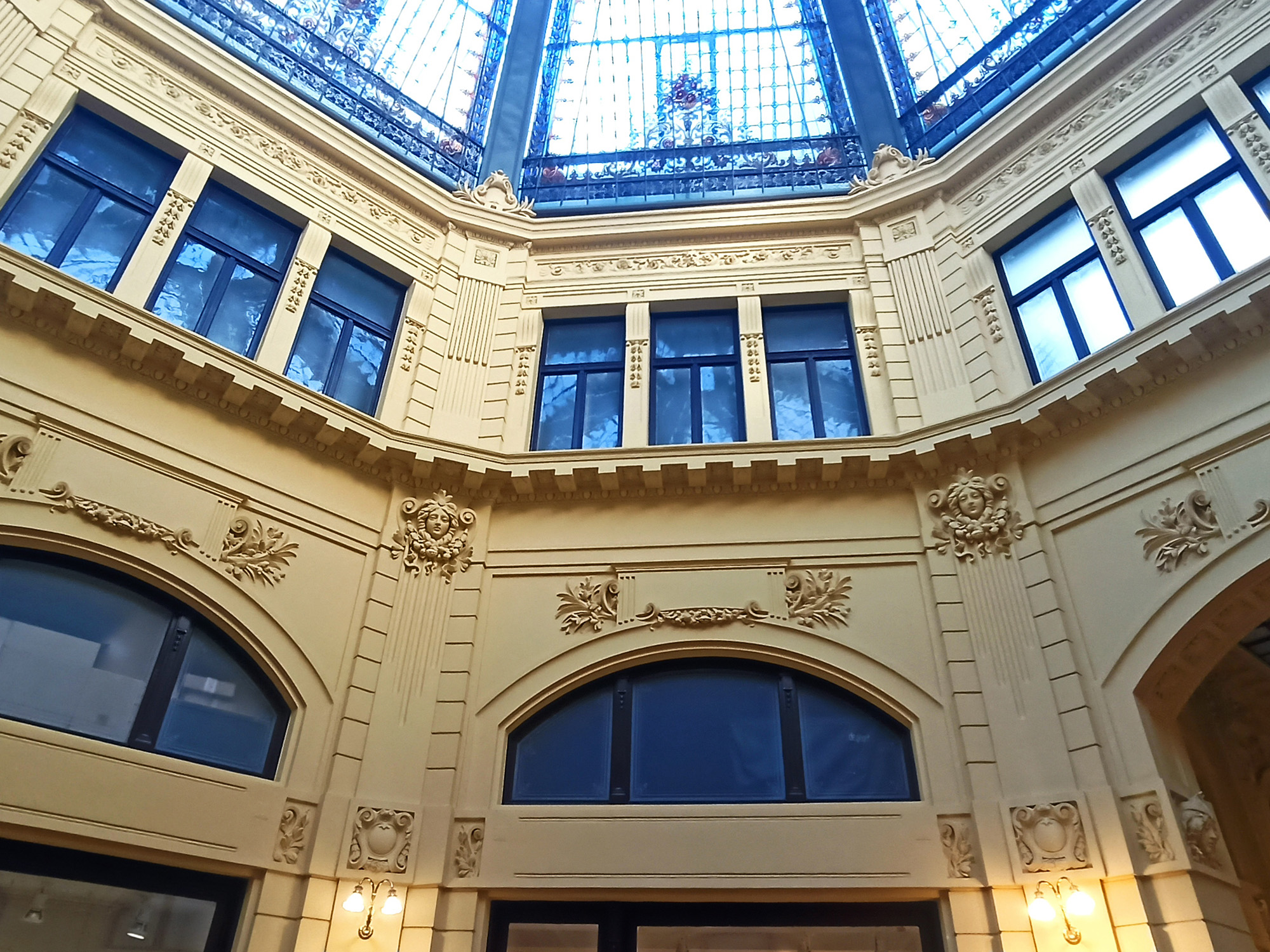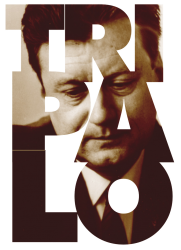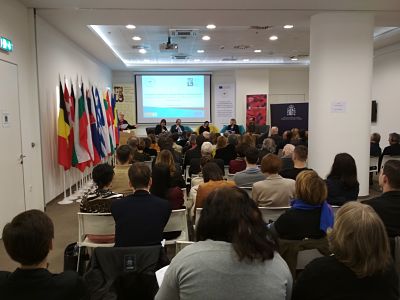Centre for Democracy and Law organized an international conference European Values, Member States, and the Future of the EU that was held on 5 and 6 December 2019, at the House of Europe in Zagreb. The conference is part of the Jean Monnet project European Values in a New Member State: Croatia in the First Five Years of EU Membership. The first day of the conference brought together leading experts on the topics of the values of freedom and solidarity in the Croatian and the European contexts, representatives of civil society organizations, unions, media, public officials and scientists who explore these values in an interdisciplinary way.
Dario Čepo from the Faculty of Law at the University of Zagreb and the Academic Coordinator of the Jean Monnet project and Tvrtko Jakovina, President of the Management Board of Centre for Miko Tripalo gave the welcome remarks. Duško Sekulić from the Faculty of Law at the University of Zagreb was the key note speaker. Dario Čepo presented the project, its objectives and he emphasized the importance of examining the role of European values in the European Union member states. Tvrtko Jakovina noted that a number of topics including the European Union and the Croatian position in the international community, are in the focus of Centre Miko Tripalo’s work. Many of the Centre’s activities have a European dimension and examine how Croatia can contribute to the European Union as a common project. Duško Sekulić gave the keynote speech on the topic of Values in Europe – Modernization, Conflict, and Change. He believes that we should not be surprised by the strengthening of authoritarian tendencies as a possible solution to social problems, and we also should not be surprised by the rising opposition to liberal ideas such as the market economy. Authoritarianism, according to Sekulić, is not a fixed feature of social and political systems; it occurs under certain circumstances. He considers sovereignty to be the new word for nationalism. Underlining the nation in such way can lead to numerous questionable outcomes, such as jeopardizing minority rights. In his concluding remarks, he paraphrased Jean Monnet by saying: „if I were to begin building the European House once again, I would start with culture, not the economy“.
The introductory lecture on the panel on freedom was by Simona Guerra from the University of Leicester. She said that the process of democratization is in retreat not only in Europe, but in the global context. Guerra showed that those countries that have democratized after the Cold War are today declining in terms of democratic standards. She cited Poland and Hungary as the main recipients and beneficiaries of EU funds, but noted that they are lagging behind when their adherence to European values are considered. Meanwhile, according to statistical data, there has been a drastic number of reports of Hungarian citizens appealing to the European Court of Human Rights (up from 0,71% to 10,41%).
The second speaker was H. E. Mr. Haakon Blankenborg, Ambassador of the Kingdom of Norway to the Republic of Croatia. He argued that the values that we speak of today within the European Union are under threat. He mentioned three speeches that clearly outlined the direction of the debate on values in the EU: the one by Jacques Delors about strengthening cooperation and institutions of the EU; the one by Margaret Thatcher about the importance of national (state) sovereignty; and the one given by Viktor Orban in 2014 about illiberal democracy. Blankenborg considers that we are witnessing a rising polarization in Europe and that the main question remains: Who will decide when my freedom is violated?
The next presentation was given by Zrinjka Peruško from the Faculty of Political Science in Zagreb and Centre Miko Tripalo. Peruško claims that the violation of media freedoms began with Viktor Orban. The question remains how can these changes in values be explained. According to Peruško, there is no longer a belief in the linear progress of values. In Eastern Europe we are prisoners when it comes to media censorship of topics and actors. She named three examples of media freedom violations: everyday pressures on the freedom of expression, freedom violations in the digital media, and cultural pressures (for example: billboards for the Fine Dead Girls theatre show being censored). Instead of media freedom we are witnesses to the constant pressures that journalists are exposed to.
Ivana Dragičević from the Information platform N1 spoke about the understanding of freedom in today’s world and the challenges facing liberal democracies. Societies have underestimated the business models of tech giants which resulted in people donating their personal information that has in turn become part of artificial intelligence and big data processes and is used to profile voters and consumers. The understanding of freedom in an age of the onslaught of radical options, whether religious or political, and the impact of the digital space and manipulation, must be redefined. The role of education is of particular importance since it does follow the same speed as the development of technology and the possibilities for manipulation. Her conclusion is that the space of freedom must be conquered continuously. She compared every individual in society with Sisyphus, who will always have to push the rock uphill in his life, no matter how many times it rolls back downhill.
Kosta Bovan from the Faculty of Political Science in Zagreb gave a presentation on youth and freedom. He asked whether we consider young people to be leaders of social change or a vulnerable group within society. The way in which young people value freedom can be an indication of socio-political developments in society. He referred to the recently conducted research which showed that 50% of young people believe that we need a strong leader, while 20% believe that dictatorship can sometimes be a better form of government. At the same time, the survey showed that 21% would justify restrictions on human rights in the case when the interests of the nation are endangered. The paradox is that young people who prefer more freedom are using Internet less for getting information, they are less interested in participation and they have less trust in political institutions. The ones who prefer less freedom are more active and have less traditional values.
The second panel on solidarity was opened by Andrea Sangiovanni from the European University Institute. He showed that there is an increase in the levels of inequality in Europe. As desirable models that would reduce inequality, Sangiovanni mentioned applying risk-sharing measures in the Eurozone, expansion of structural and cohesion funds, and sharing burdens of refugee integration. He named the single market efficiency, lower transaction costs and free movement as potential benefits of further integration. As the costs of integration he mentioned the increase of inter-regional inequality and higher pressure on lowest earners in host countries.
Adrijana Martinović from the Faculty of Law at the University of Rijeka cited dignity as the bedrock of the European Union because we all share it. Solidarity can be realized only with greater social justice because it is the basic assumption of functioning within the European Union. By joining the European Union, we take on the responsibility to behave according to the value of solidarity towards other member states. Solidarity entails cohesion and just distribution as the normative foundation for the functioning of the European Union.
Ivan Blažević from Foundation SOLIDARNA spoke about philanthropy stating that philanthropy has a deeper reach into the system than a state has. He presented the data according to which women are much more inclined to donate and their donations are directed towards more important cases. Philanthropy is most developed in Germany in contrast to other EU member states. Blažević believes that philanthropic sector should develop more in line with the bottom-up approach, from the national to the European level. In Croatia, donations are directed towards marginalized groups in society.
Ana Miličević Pezelj from the Union of Autonomous Trade Unions of Croatia claims that the welfare state should be revitalized. When the market system was developing, at first these changes were described as the social market economy, but in Croatia we have lost the social part of this phrase. The economic crisis has undermined the system of values and made the rich even richer. Miličević Pezelj underlined that nobody talks of labor as a value and, therefore, she urges the unions to fight for the rights of most vulnerable citizens.
Valerija Botrić from The Institute of Economics in Zagreb was the last speaker. She stated the four criteria for a successful currency union: labor mobility, capital mobility, a risk sharing system, and establishment of equal business cycles. Statistics have shown that there has been no increase of solidarity among EU member states. On the contrary, the differences between them are increasing. Botrić claims that the differences are not only present between EU member states, but that our societies within the Union are quite heterogeneous. When it comes to inequalities in Southern Europe, the differences were present from the early 1980s, but in Eastern Europe the inequalities began to increase in the 1990s and they are still present. Economic policy measures must be adopted in the short term, but we still do not know whether they will work in the long term.
During the discussion Gvozden Flego, former Minister of Science and Technology, referred to Bovan’s presentation about young people in Croatia. He said that the problem lies in the Croatian school system because young people are compelled to memorize facts. According to Flego, teachers and professors have a crucial role and they should teach young people how to think critically. But, unfortunately, the school system is a reflection of social changes that are currently happening. Kosta Bovan asked whether we want young people who will engage and be active members of the community or do we want them to be passive. The key question remains what does freedom mean. Zrinjka Peruško said that our expectations from young people are too high and there are large differences in the perception of freedom. Iva Slavica Ilić, a private entrepreneur, said that media should have a more important role regarding freedom promotion. Dario Čepo highlighted the fact that authoritarian actors within the European Union are still achieving high benefits from their membership. Nada Švob Đokić from the Institute for Development and International Relations mentioned that the perceived homogeneity within the European Union depends on whether we see it from the perspective of Europe or other regions outside of Europe, such as for example Africa.
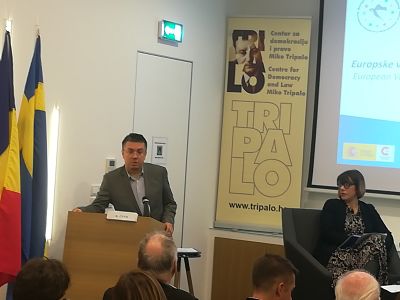
dig 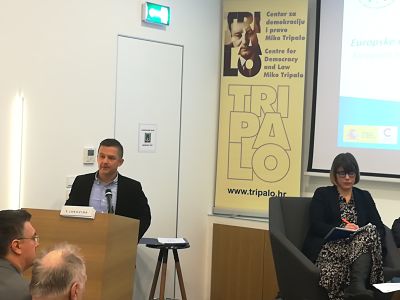
dig 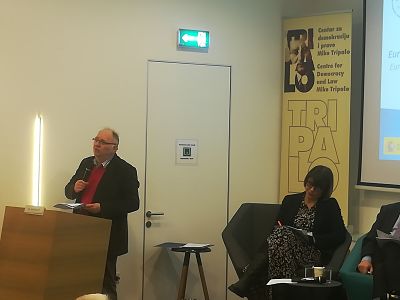
dig 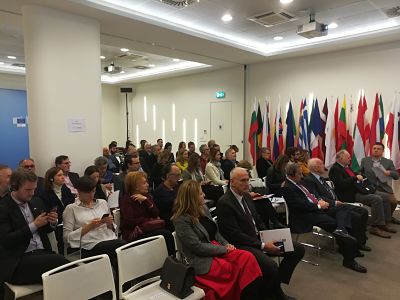
dav 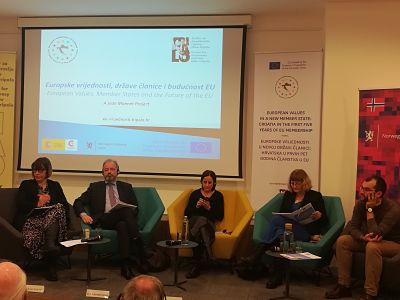
dav 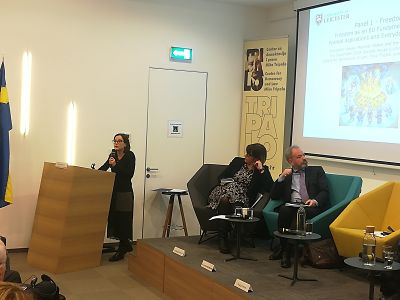
dig 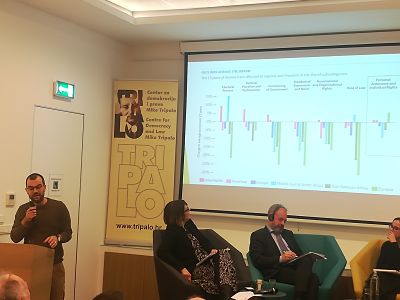
dig 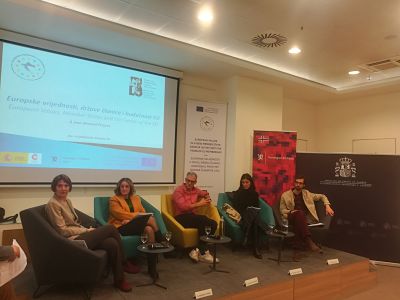
sdr 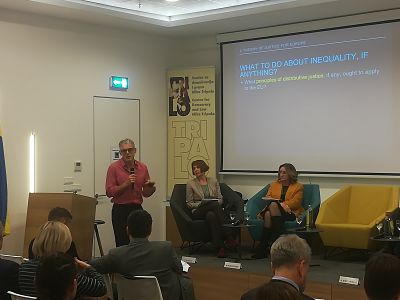
dig
